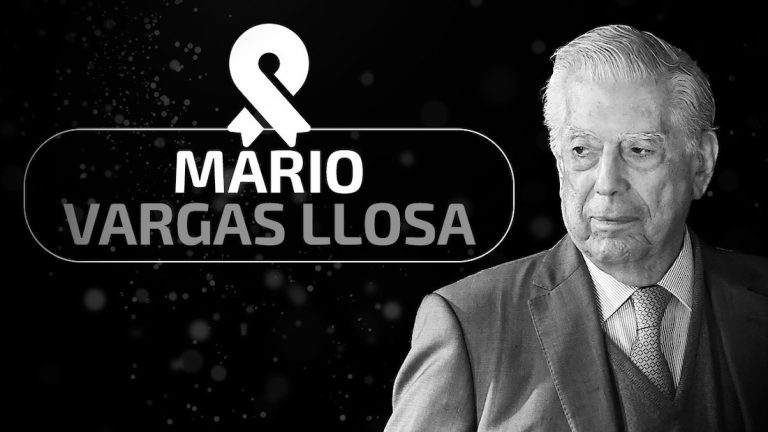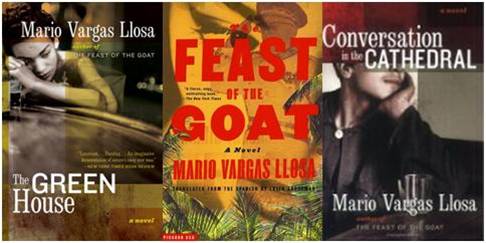
Originally published in the Huffington Post, 2010
Vargas Llosa speaks about Barack Obama’s Nobel Prize,
the state of literature, inter-American relations and politics.
New York, N.Y. — Four hundred years ago an Inca princess bore the son of a Spanish Conquistador. Their child, Inca Garcilaso de la Vega, grew up to write the first Spanish-American masterpiece, The RoyalCommentaries (Comentarios reales).
Last week, with a panel of preeminent scholars and the great Peruvian writer Mario Vargas Llosa, the Americas Society concluded a CUNY symposium entitled Inca Garcilaso de la Vega and his Royal Commentaries: A Reading for the 21 Century in their elegant Park Avenue headquarters.

“Comentarios reales” tell the incredible story of the Inca world turned upside down. The Royal Commentaries, published in Lisbon in 1609 before the Pilgrims landed at Plymouth, tell the incredible story of the Inca world destroyed as the Spanish concluded their bloody conquest of Peru.
There was a backlash to the excesses of Iberian power. According to The Royal Commentaries:
“The mestizos, the sons of the conquerors of the empire by the Indian women, were… accused of having conspired with Prince Túpac Amaru and the other Incas to rise in revolt…
All those of Cuzco of twenty years or more and capable or bearing arms were arrested. Some were condemned to torture.
“As the Spanish prepared to execute the prince in Cuzco, leader of the Inca nation, 300,000 people watched. The majority of the population there was indigenous, vastly outnumbering the Spanish colonizers, and they were very angry.
“The Inca raised his right arm with his hand open, then brought it to his ear, and dropped it gradually to his thigh.
“From this, the Indians understood that they were being told to be silent and the shouting and crying ceased, as they became so quiet that it seemed as if there was not a living soul in the whole city, to the great astonishment of the Spaniards…
In controlling his own people, Túpac showed that he was the legitimate and moral ruler of Peru. However, power often trumps morality, and the civilization based in Cusco was over.
As a boy, Mario Vargas Llosa told the standing room-only crowd in Spanish, he read The Commentaries but felt little. At the university, however, he got it. He felt connected to the epic book.

“I read it and re-read it. I was amazed at the incredible antidotes of ancient times. I could taste the colors of the words,” he said in Spanish.
Mario pointed out how the language used in The Commentaries was a “revolutionary act,” as it combined the softness of Quechua – the Inca language – with the European’s Spanish, creating a hybrid that changed not only Peru but the world.
“Underneath this new language hybrid was a feeling of richness and melancholy,” the author explained. This new Spanish captured the mestizo’s world and became used universally.
As an adult, he can now see that the book expressed an ideology of a Latin American identity, of a nationalism not trying to subjugate others, but to unify them.
The evening was launched by a welcome by Susan L. Segal, president and C.E.O. of the Americas Society. Susan came to the Society as a Partner and the Latin American Group Head at JPMorgan Partners/Chase Capital Partners.
The distinguished session, chaired by Alfred Mac Adam, explained Comentarios reales from their respective academic perspectives.
- Dr. Juan Ossio of the Pontificia Universidad Católica del Peru explained the Inca myths of human origins described in the book.
- Dr. Margarita Zamora of the University of Wisconsin in Madison spoke of the book’s portrayal of colonization.
- Dr. Thomas Wardof Loyola University in Maryland discussed modern nativist readings of Garcilaso in Peru.
The symposium co-organizer is Daniel Shapiro, Director of the Literature Department at the Americas Society.
An hour long interview in Spanish between Mario Vargas Llosa and Dr. Raquel Chang-Rodríguez followed. Raquel, who organized the event, is Distinguished Professor at the City College-Graduate Center of CUNY.
The event was co-organized by Daniel Shapiro, Director of Literature at the Americas Society.
Mario Vargas is one of the world literature’s most important novelists.
Some critics consider him to have had a larger international impact and worldwide audience than any other writer of the Latin American Boom. A thought leader in literature and literary criticism.
A global citizen, he holds a Spanish passport and lives between Lima and London.

Like many Latin American authors, Vargas Llosa has been politically active throughout his career. Like most Latin American intellectuals, he supported Castro in the early 1960s, but gradually became disenchanted.
Vargas Llosa ran for the Peruvian presidency in 1990 with the center-right Frente Democrático coalition,advocating neoliberal reforms. He has subsequently supported moderate conservative candidates.
Dignified, intelligent, intellectual, with gray hair and gray tie, Mario reminded me of Walter Cronkite, circa 1975. He appeared trustworthy, sober, thoughtful, compassionate – and humorous.
Associated with the Boom avant-garde literary movement in Latin America in the 1960s through such masterworks as The Green House, Conversations in the Cathedral, and The Feast of the Goat,he has written numerous other novels. He also writes essays, plays, and works of literary criticism.
Under the editorship of Raquel Chang-Rodríguez, a book collecting all papers presented at he symposium will appear in April by the Fondo Editorial of the Pontificia Universidad Católica del Peru.
A special issue of Review: Literature and Arts of the Americas focusing on the Inca Garcilaso and His Legacy, will be published in November and launched at the Society on November 12, 2009. Review is published by Routledge on behalf of the Society. (Info here)
The Americas Society
“Ignorance of our neighbors is neither sensible nor safe, neither smart nor neighborly, neither good economics, nor good manners…”
The Americas Society where he spoke is the premier forum dedicated to education, debate, and dialogue in the Americas. The room sparkled under crystal chandeliers,the well-dressed audience reflected in its gilded mirrors.

In 1965, a group of noted businessmen led by David Rockefeller founded the Center for Inter-American Relations.
As the Center’s mission was articulated in 1970, “Ignorance of our neighbors is neither sensible nor safe, neither smart nor neighborly, neither good economics, nor good manners…”
The Center for Inter-American Relations was absorbed into the Americas Society in 1985.
Since that time, the Americas Society has played a pivotal role in disseminating the cultural achievements of Latin America, the Caribbean, and Canada in the U.S.
Its mission is to increase public awareness and appreciation of the diverse cultural heritage of the Americas, as well as the importance of the inter-American relationship.
I asked Vargas Llosa what he thought of Barack Obama winning the Nobel Peace Prize. He admitted he was as surprised as anyone, and believed that the prize was awarded for what the world hopes will be, not what is.
I believe that Vargas Llosa fans around th eworld will not be surprised the morning he is awarded the Nobel Prize for Literature.
Mario Vargas Llosa on End of Incan Empire at the Americas Society
(April 14, 2025; originally published in the Huffington Post, March 18, 2010)
#MarioVargasLlosa, #IncaEmpire, #AmericasSociety, #LatinAmericanLiterature, #IncaGarcilaso, #RoyalCommentaries, #PeruvianHistory, #LiterarySymposium, #BarackObama, #NobelPrize, #CulturalHeritage, #InterAmericanRelations, #TheArts, #Eyewitness, #JimLuce
Tags: Mario Vargas Llosa, Inca Empire, Americas Society, Inca Garcilaso de la Vega, Royal Commentaries, Latin American literature, Peruvian history, CUNY symposium, Barack Obama, Nobel Prize, inter-American relations, cultural heritage, literary criticism, mestizo identity, Park Avenue, New York

